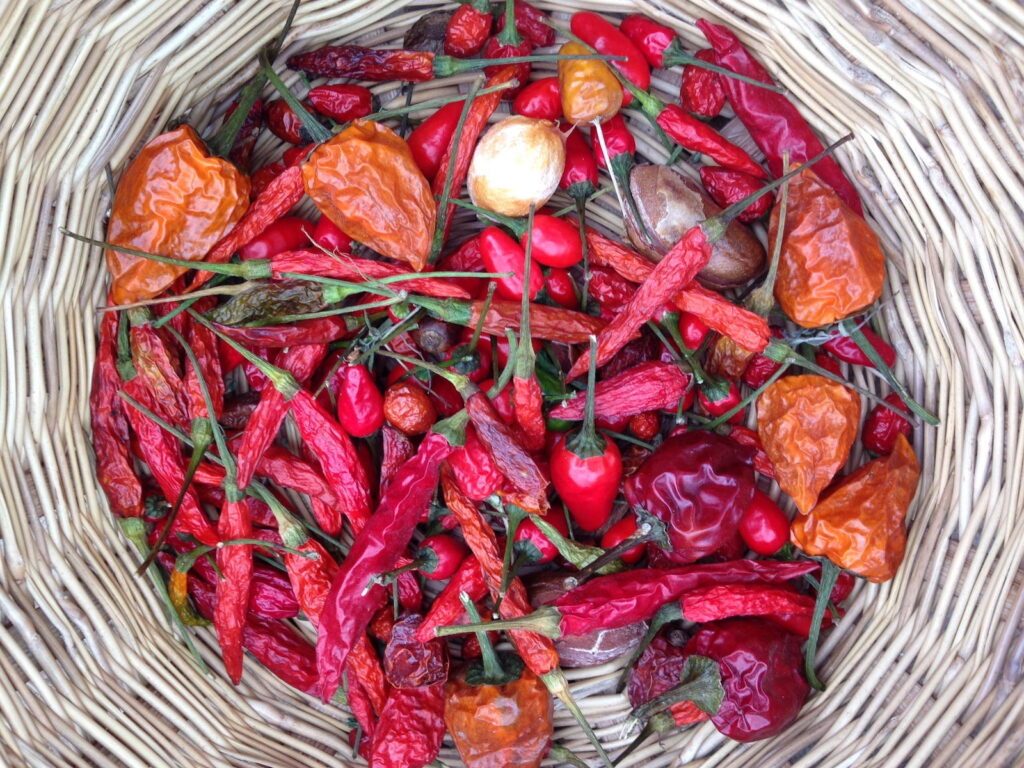Gastropod looks at food through the lens of science and history.
Co-hosts Cynthia Graber and Nicola Twilley serve up a brand new episode every two weeks.
Co-hosts Cynthia Graber and Nicola Twilley serve up a brand new episode every two weeks.

By now, you might know Harold McGee as a Gastropod regular guest from his appearances in our episodes on smoke and caffeine, amongst others. Harold is an expert on food chemistry, best known for his book On Food and Cooking. His most recent book is Nose Dive: A Field Guide to the World's Smells.
Maricel Presilla is a James Beard award-winning chef and culinary historian who specializes in the history of the cuisines of Latin America and Spain. In 2009, she was the first Latin American woman to be invited to the White House as a guest chef (she decorated the dining room with chiles!). Peppers of the Americas: The Remarkable Capsicums That Forever Changed Flavor is her seventh book, and it's a gorgeous encyclopedia ode to the plant.
Danise Coon is a senior research specialist at the Chile Pepper Institute at New Mexico State University, where she helps breed new cultivars. Danise says her favorite variety is the NuMex Heritage 6-4, because it has amazing flavors and is super easy to peel. We used the chile tasting wheel developed by Danise and her colleagues during our tasting: read more and get your own here.
If you came to our live show in Philadelphia, you might remember our fabulous guest Pam Dalton: She’s a scientist at the Monell Chemical Senses Center, where she works with capsaicin, amongst other substances. Pam studies how cognitive and emotional processes modify the way we perceive odor and sensory irritation from volatile chemicals.
Edward Wang is the head of the Asian Studies Program at Rowan University, where he researches historiography and the cultural and intellectual history of Asia. His most recent book is Chopsticks: A Cultural and Culinary History, the first book in English on the topic of chopsticks. He also referred us to Brian R. Dott's new book on the chile pepper's history in China, which has even more information on the subject: The Chile Pepper in China: A Cultural Biography.
We looked all around the find a one-stop-shop to source a wide variety of dried peppers for this episode, and the best we found happened to be just down the road from Cynthia in Somerville, Mass., at Christina's. She biked over in person to pick them up and sent samples of each to Nicky, but you can order online (the owner set up the online store when the pandemic hit, and it's quite complete). If you want to try the Carolina Reaper—well, don't say we didn't warn you... But definitely pick up a jar of aji amarillo!
While we didn't end up interviewing author Stuart Walton for this episode, this is a great read if you're looking for just one book about peppers. It's a fun and engaging deep dive into the biological, gastronomical, and cultural impact of the fruit.
Click here for a transcript of the show. Please note that the transcript is provided as a courtesy and may contain errors.